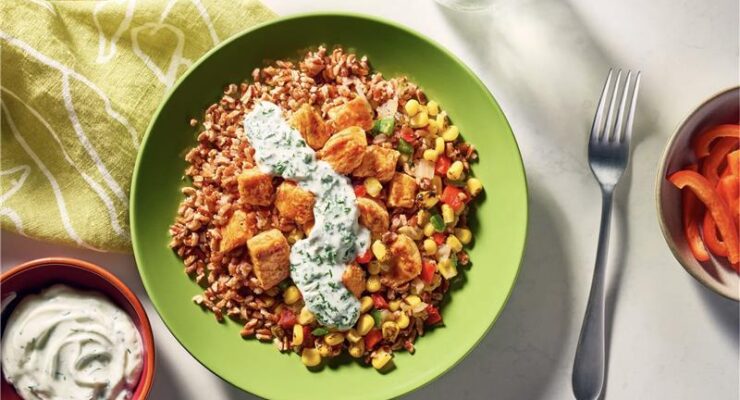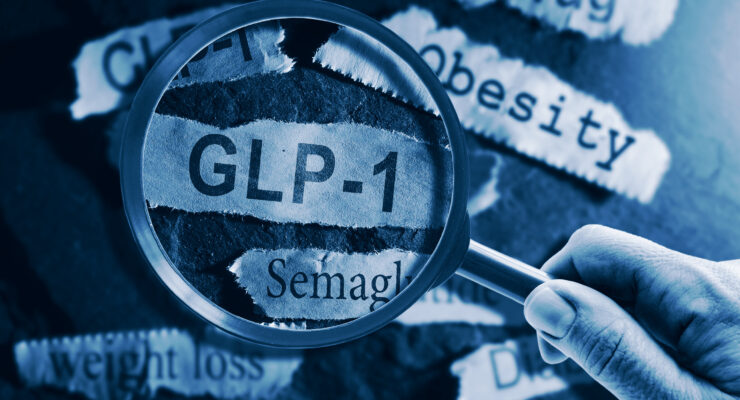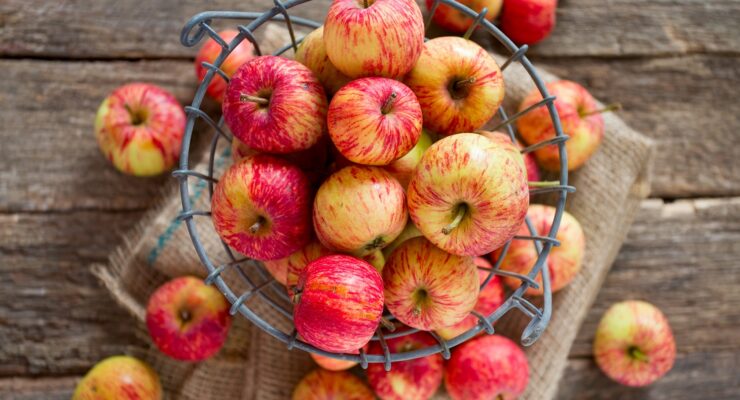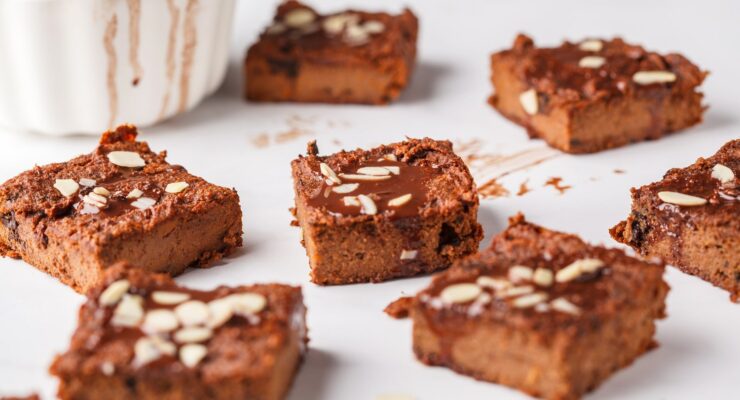6 Portion Control Tips for Weight Loss and Healthy Eating
Article posted in: Diet & Nutrition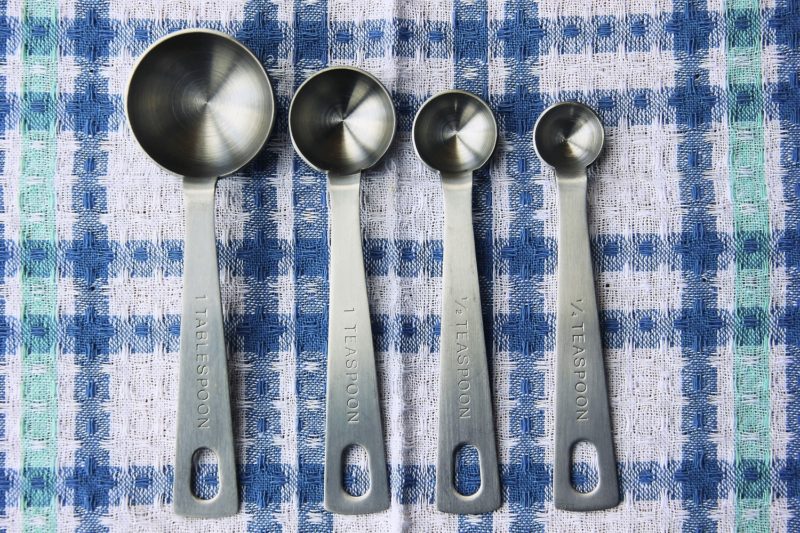
When it comes to losing weight, it isn’t about just what you eat … it’s also about how much you eat.
Of course, certain foods and nutrients can help you feel satisfied and control your appetite: healthy fats from nuts; fiber from fruits, vegetables and whole grains; protein from eggs, beans and meat. That’s why many Nutrisystem meals and snacks are loaded with both fiber and protein.
But even “good” choices can sabotage your weight loss progress if you eat too much. For example, two tablespoons of almonds provides filling, healthy fats and about 70 calories. On Nutrisystem, that amount counts as one PowerFuel. But if you snack mindlessly on them, the calories in almonds add up: One full cup of whole almonds is 828 calories.
This can be the difference between eating an amount that helps you stay full, energized and on track with your weight loss versus an amount that causes your “healthy” snack to lead to weight gain.
The problem: We’re really bad at estimating portion sizes, so we have trouble controlling them. Studies show that when we don’t measure, Americans correctly guess the size of a portion only about half the time. And we’re especially bad at estimating portion sizes when it comes to snacks and sweets.
That’s why portion control is the cornerstone of Nutrisystem: The meals and snacks we send you are perfectly portioned so you know exactly how much you’re eating, and know it’s an amount that’s helping you progress towards your weight loss goals.
But when it comes to your grocery add-ins and Flex meals, portion control is essential. Use these six tips to keep all your other portions under control and stay on track.
1. Measure and store foods in healthy portions—before you’re hungry.

When you’ve got an appetite, you may want to grab something and eat it—fast. Measuring out portions in advance can help you be sure that those two tablespoons of almonds don’t balloon into a half-cup or more: You can simply grab the bag or container where you’ve pre-measured the snack you want, and you’ll know how much you’re eating.
This can be especially useful for foods that you know you tend to binge on: If you buy a block of cheese and know you tend to eat a bunch of it when you’re feeling snacky, flip it over and look at the nutrition label when you get home. If it’s got 16 servings, cut the block into 16 servings right away, then put those in containers or bags. Or if you tend to grab a bunch of sandwich cookies, consider pre-portioning the entire package into servings as soon as you get home. That way, when you do snack, you can grab a serving that you know fits your plan.
The Nutrisystem Grocery Guide can help you determine what those healthy portions should be, so you can load your cabinets and refrigerator with pre-portioned snacks and ingredients that fit your plan. You can also chop up some non-starchy vegetables which are unlimited foods—like cucumbers, carrots and bell pepper slices—so you’ll have tasty, pre-prepared snacks that you can eat in big portions.
All this snack prep has a bonus: Research shows that more time spent prepping food in the kitchen is highly correlated with eating a higher-quality, nutritious diet—and with better health outcomes!
2. Buy pre-measured portions.

Don’t have time to pre-measure everything? Take advantage of pre-portioned options. Smaller bags of chips and crackers, 100-calorie packs, or other pre-portioned foods can help you keep track of how much you’re eating.
Nutrisystem IS a big help here: Our snacks, like the Chocolate Chip Cookies and White Cheddar Popcorn, are already pre-portioned, so you can eat the entire package and feel satisfied while staying on plan. No measuring needed.
3. Use your hands to help.

Sometimes the serving size on a label—or even the amount listed in the Grocery Guide—can be confusing: How much salmon is in three ounces? How much tuna is in a half-cup?
If you don’t have a food scale or measuring cups/spoons handy, you can use your hands or common household objects to help you estimate the proper portion size. Check out the infographic below for some common examples:
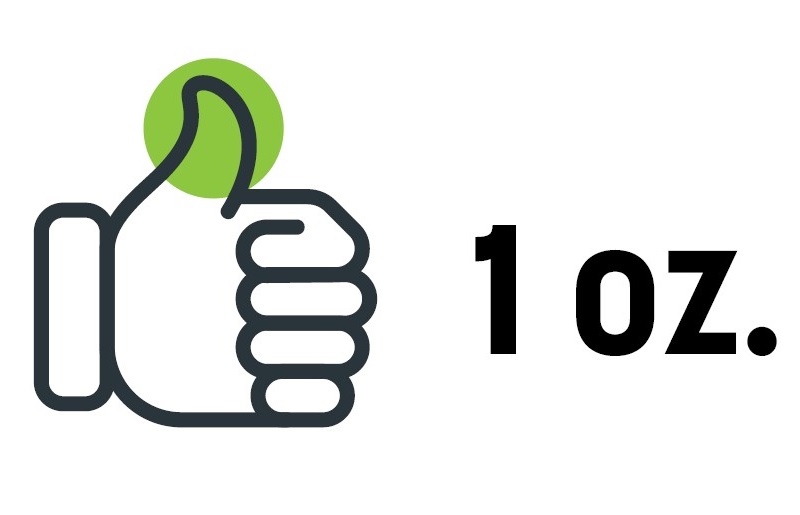
1 oz. = 1 thumb or 3 dice
Examples:
PowerFuels: reduced fat cheese
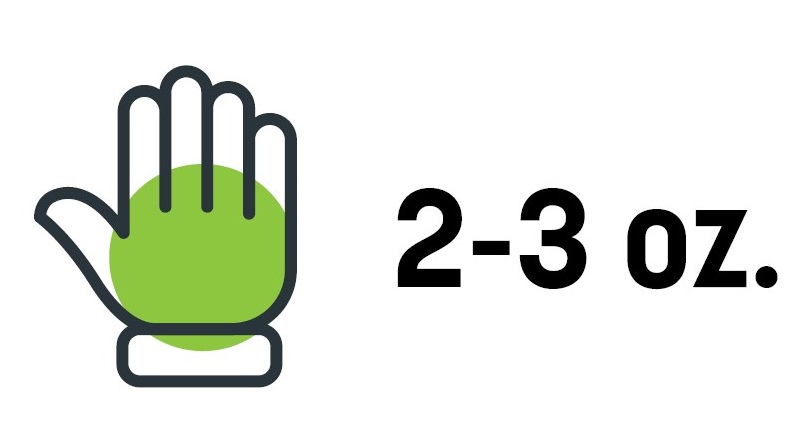
2 oz. = about ²/₃ palm of hand or deck of cards
3 oz. = 1 palm of hand or deck of cards
Examples:
PowerFuels: 2 oz. meat, poultry or fatty fish, or 3 oz. white fish
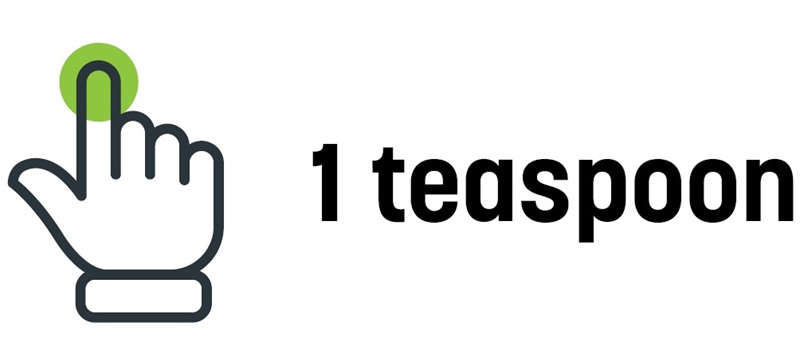
1 tsp. = 1 fingertip or 1 dice
Examples:
Extras: honey, jelly, maple syrup, mayonnaise, oil and seeds
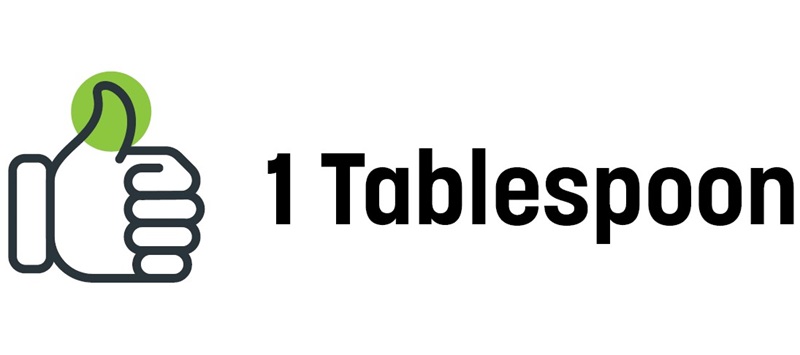
1 Tbsp. = 1 thumb or 1 poker chip
Examples:
PowerFuels: 1 Tbsp. oil and nut butter, or 2 Tbsp. nuts and seeds
Extras: avocado, ketchup, low-fat coffee creamer, light salad dressing and reduced-fat mayonnaise
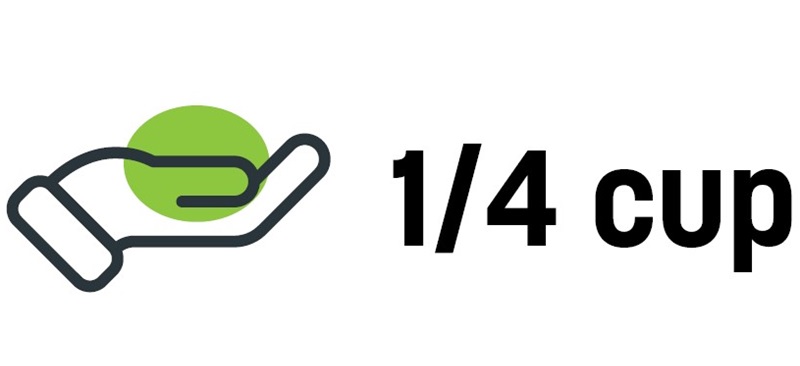
¼ cup = ½ cupped hand or 1 egg
Examples:
PowerFuels: avocado, ricotta cheese, and shredded, grated or crumbled cheese.
SmartCarbs: dried fruit and hummus
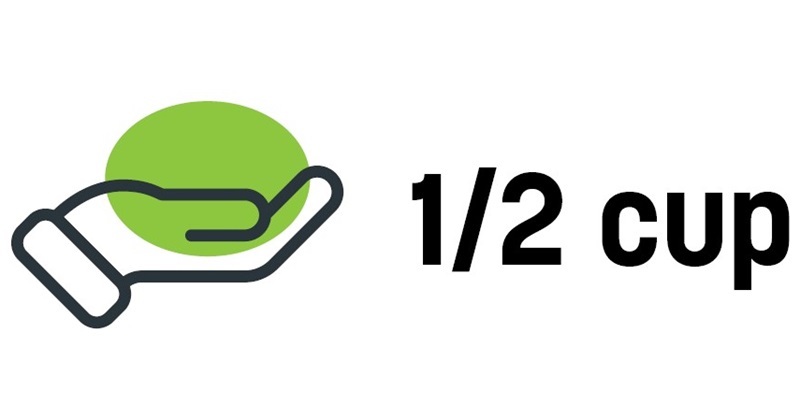
½ cup = 1 cupped hand or computer mouse
Examples:
PowerFuels: 1% cottage cheese, canned tuna, edamame and lean ground turkey
SmartCarbs: brown rice, quinoa, whole grain pasta, beans and starchy veggies (corn, potatoes and peas)
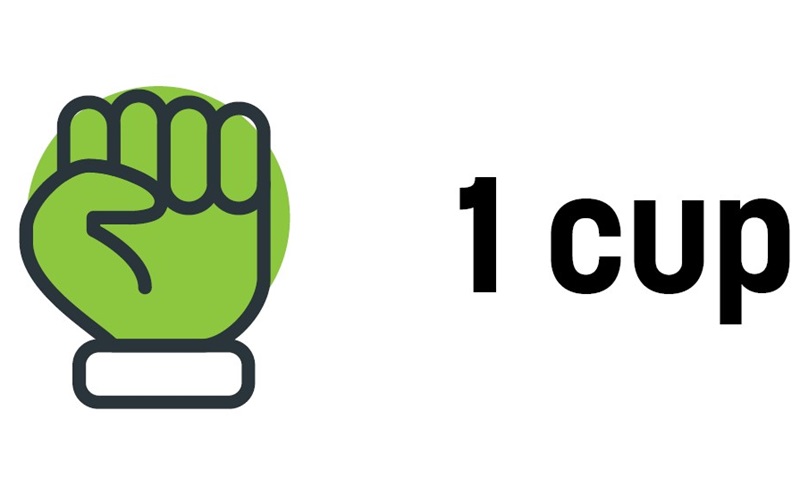
1 cup = 1 clenched fist or baseball
Examples:
PowerFuels: low-fat milk
SmartCarbs: fresh fruit and berries
Extras: unsweetened almond milk and air-popped popcorn
4. Don’t eat directly out of a full-sized bag or box. Use a plate or bowl.
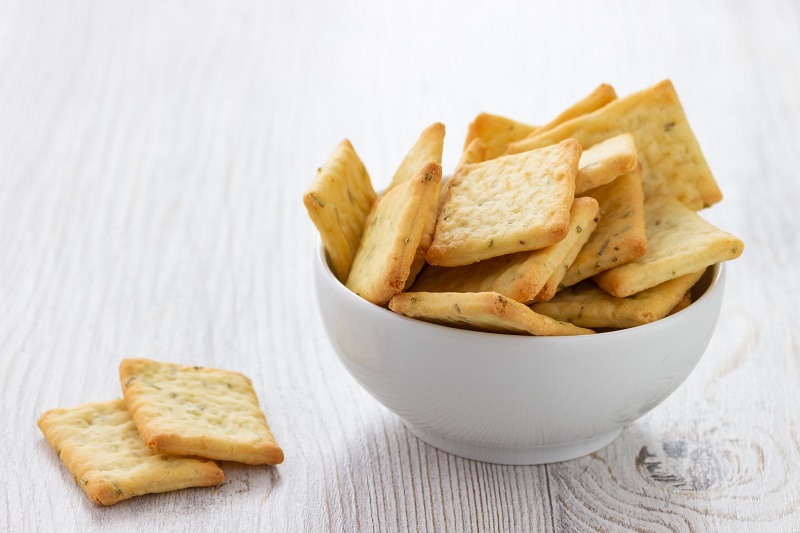
If you can’t eat from a package where the whole contents is equal to one serving, don’t eat out of the bag or box. It’s tough to know how much you’re eating, and easy to be carried away … as anyone who’s lounged with a bag of chips can tell you.
Instead, measure the portion onto a plate or into a bowl before you sit down to eat. That way, you won’t have to rely on your willpower to stop—you can clean your plate and know you’ve eaten a healthy portion that fits your plan.
5. Pair a salty snack or sweet treat with an unlimited food.
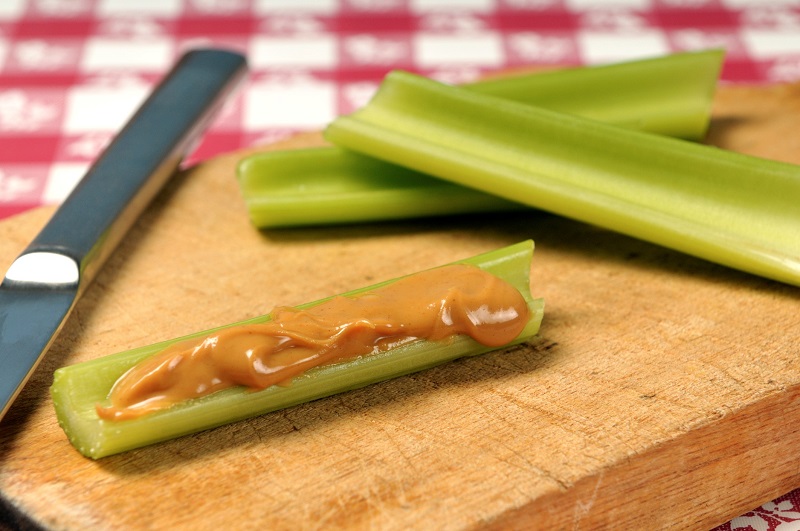
If you love eating in large quantities, try pairing a healthy portion of a salty, sweet or fatty food you crave with another unlimited food, such as carrot sticks, slices of cucumber, green pepper slices or broccoli florets. These foods are unlimited because they’re filled with nutrients your body needs without many calories. By combining these two types of food on a single plate, you’ll get to eat some of the food you love, and eat the volume that will fill you up.
6. Figure out what you’re really craving. Eat a portion of that.

If there’s a food you’re really craving—like a favorite ice cream, or a chocolate chip cookie, or a cheese-flavored snack that always hits the spot—Nutrisystem dietitians say you can actually go overboard eating other foods trying to avoid your food craving all together. You know the feeling. You really want a cookie, but you end up picking at other stuff—a pretzel here, a cracker there—and never really feel satisfied … but you’ve piled up a bunch of extra calories.
The solution, our experts say, is to give into that craving … with a controlled portion. If you’re really craving a specific food, measure out a portion that matches the Grocery Guide guidelines, and really enjoy it. That’s the beauty of Nutrisystem’s program: No food is off limits when eaten in the right portion. So savor that healthy portion, log it in the Nutrisystem app, and stay on track to your goals!

